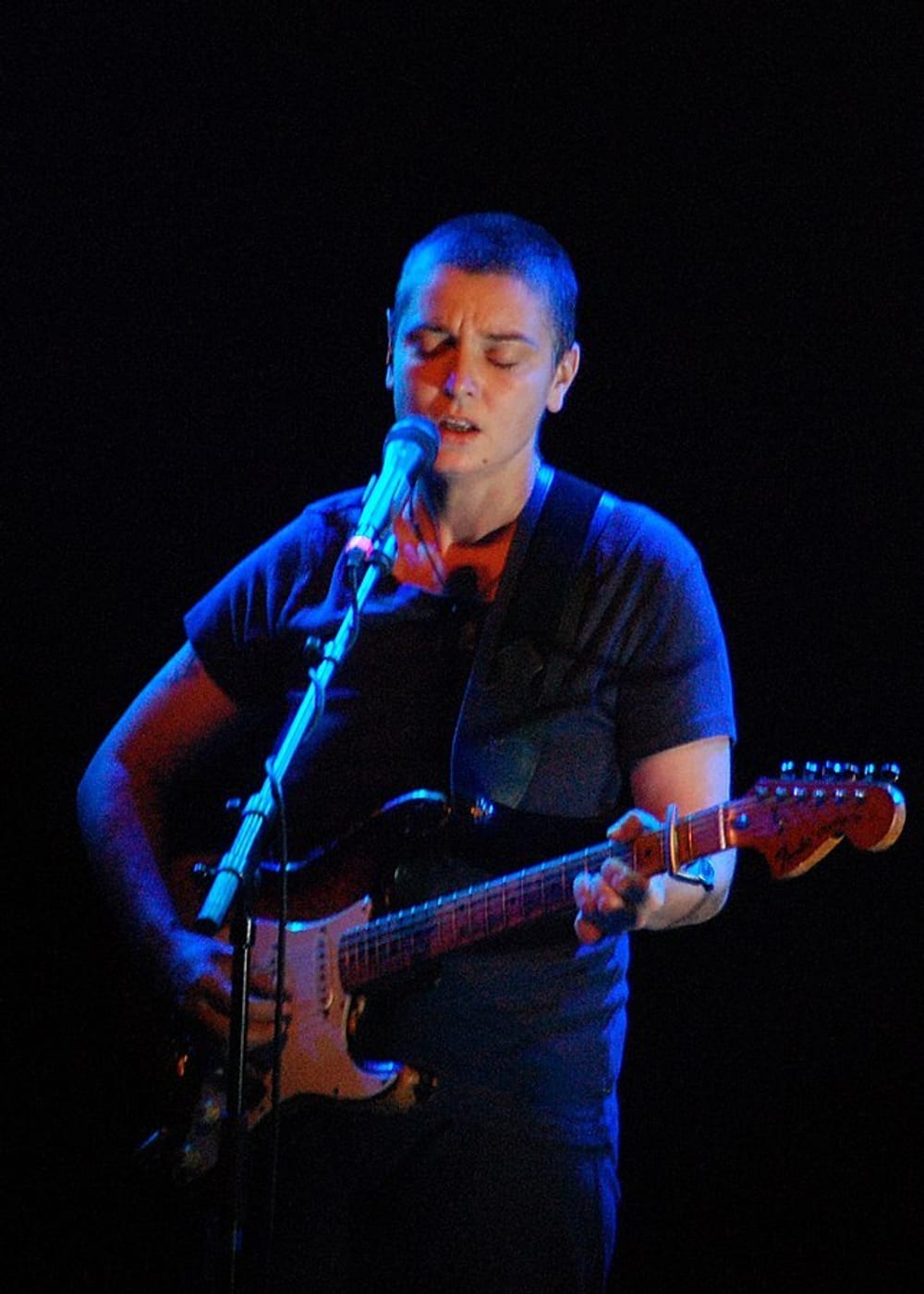Stay in the Loop
BSR publishes on a weekly schedule, with an email newsletter every Wednesday and Thursday morning. There’s no paywall, and subscribing is always free.
We need Sinéad O’Connor’s spirit more than ever
Coming of age with Sinéad

A few weeks ago, when a news alert announcing Sinéad O’Connor’s death flashed on my screen while I was working, I shut my laptop and started to weep. The grief came on suddenly and full of intensity. It reminded me of how I felt when I heard the news that my grandmother had died, not a feeling that I normally get when I hear of a celebrity passing. I put on The Emperor's New Clothes at full volume and danced around my living room, heart ripped apart and aching.
I became my 21-year-old self, walking home from my summer waitressing job with Nothing Compares 2 U playing on my Walkman, ignoring the catcalls of frat boys and construction workers, O’Connor’s singular voice energizing and sustaining me.
At the restaurant where I earned my rent money, I had to dodge the touchy manager, the man who determined who got the good shifts, the one who “accidentally” laid his hand on my breast. That was a different kind of dancing—learning to smile and laugh at his stupid jokes and move my body fast enough so I’d never be face-to-face with him in the dank prep station again. In the years before #MeToo, every woman did some version of that dance, swallowing her rage.
In the safety of our cozy college apartment, my roommates and I sang and swayed and rocked out to O’Connor. Her voice, her defiant look, her powerful and poetic lyrics ignited my sense of inner power at a time when I was just beginning to sense its depths, to find a way to give it voice.
What she had to do
Growing up in a small town during the Reagan and Bush years, the culture around me was football, military, and rigid expectations. It was the birth of the so-called Moral Majority, a thousand points of light. In my high-school graduating class of 335, two of us were Jewish, and a few kids were from South Asian families. No one was openly gay. There was no culture of diversity, of alternative perspectives. My act of rebellion was wearing a pin on my jean jacket with a slash over a wire hanger and another that said fuck off nazi punks and writing letters to the editor of our small-town paper about freedom of religion and human rights.
When I left home for college in Boston, O’Connor became part of the soundtrack of my awakening years: immersion in music and books and feminist lit classes and the gift of a radical activist theater teacher who spoke out about being gay in the AIDS era. All these elements ignited my writing voice, the voice putting these words into a keyboard now, the action I’ve been taking daily for 30 years to channel my fury at the injustice in our world.
I was watching SNL with some friends the night that O’Connor ripped up the picture of the Pope. I had no frame of reference then for what was happening in the Catholic Church, the depths of the abuses she was protesting, the courage she had to summon to take that brave, defining act. But when she ripped the photo, electricity went through my body like a current. I knew that it was something that she had to do.
The voice of fierce vulnerability
In the world that O’Connor left last month, the world that I now inhabit as a woman in my 50s who has lived through my own trials and anguish, injustice is flaring up like the wildfires our planet is facing, burning from all directions. Women in parts of the United States are dying because they can’t get legal abortions. Books are banned, history lessons are rewritten to cover up the pain and inhumanity of slavery. Law after law targets transgender kids, those brave souls, including my own son, who are simply showing up as who they are.
I’ve been listening to O’Connor singing every morning when I walk, her voice ethereal and eternal, blasting through my headphones. My morning walks are when I harness my energy for the day, pray for my children and for the highest good of us all. O’Connor's loss still feels deeply personal to me, like grieving a loved one, not a celebrity that I never knew. I am rethinking what it means to know and love the artists who inspire us, especially those from a time when we are deep in formation.
O’Connor led from a vulnerability that was fierce for the sake of truth-telling, the kind of voice that we need now. I feel gratitude for her influence on me, for the courage she gave me that lives inside me. I remind myself that no matter how frightening the world feels, that I have a voice.
Above: Sinéad O'Connor at the Music In My Head 2008 in the Hague. (Photo by Leah Pritchard from Den Haag, Netherlands, via Wikimedia Commons.)
Sign up for our newsletter
All of the week's new articles, all in one place. Sign up for the free weekly BSR newsletters, and don't miss a conversation.

 Gabrielle Kaplan-Mayer
Gabrielle Kaplan-Mayer